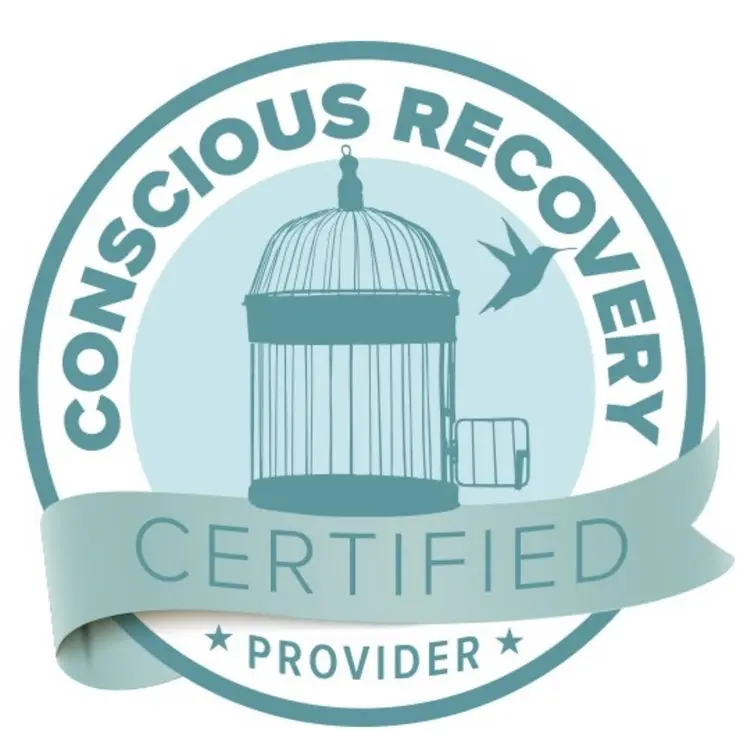Trauma reshapes how we experience the world, influencing our emotions, behaviors, and relationships in ways that can feel overwhelming. Whether from life-altering events or subtle, deeply personal experiences, its impact can disrupt feelings of safety, trust, and self-awareness. For those feeling stuck or struggling to move forward, the need for focused, intensive care becomes essential to healing.
At Monima Wellness, we provide specialized trauma and mental health treatment through our partial hospitalization (PHP) and intensive outpatient (IOP) programs, offering the comprehensive support you need to rebuild and thrive. If you’re ready to take the next step in your healing journey, contact Monima Wellness today. Let us guide you toward lasting recovery and renewed connection.
Are you struggling to cultivate healthy relationships and emotional stability? Take the Attachment Style Quiz to learn more about how you relate to others.
Attachment theory, as introduced by British psychologist John Bowlby, revolutionized our understanding of human development and interpersonal relationships. It asserts that the bonds—or attachments—we form with our primary caregivers in early childhood are critical to our emotional and psychological development. These initial bonding experiences serve as an “emotional blueprint” template that shapes our expectations and behaviors in relationships throughout our lives.
Bowlby’s concept was further illuminated by Mary Ainsworth’s seminal research, which introduced the “Strange Situation” assessment—a method to observe and classify the nature of attachment between infants and their caregivers. Through her observations, Ainsworth identified three primary attachment styles: secure, anxious-ambivalent, and avoidant. Later studies introduced a fourth style, known as disorganized attachment.
Attachment trauma occurs when the fundamental bond between a child and their primary caregiver is disrupted or becomes a source of distress. These experiences—ranging from neglect and abuse to emotional unavailability—can leave deep emotional wounds that affect relationships, self-esteem, and emotional regulation well into adulthood.
Attachment trauma can stem from various overt and covert experiences, such as:
Attachment theory provides a powerful framework for understanding how early childhood experiences shape how we connect with others. The bonds we form with primary caregivers influence our emotional responses, communication patterns, and relationship dynamics throughout life. By exploring the four main attachment styles, we can gain valuable insights into how we interact with others and identify areas for personal growth.
People with a secure attachment style are comfortable with both closeness and independence. They trust easily, communicate effectively, and approach relationships with mutual respect and empathy. This attachment style fosters emotional balance and resilience, providing a solid foundation for meaningful connections.
Key characteristics:
Individuals with an anxious attachment style often crave closeness but struggle with feelings of insecurity. A fear of abandonment drives their desire for constant reassurance, which can sometimes strain relationships. This heightened sensitivity to their partner’s emotions often leaves them uncertain and vulnerable.
Key characteristics:
Those with an avoidant attachment style value self-reliance and emotional independence, often avoiding deep emotional connections. They may see vulnerability as a weakness, leading them to keep others at arm’s length and focus on maintaining control in relationships.
Key characteristics:
Individuals with a disorganized attachment style experience a conflict between a desire for intimacy and a fear of getting hurt. This can result in a pattern of seeking closeness but withdrawing when relationships become too intense, creating confusion and unpredictability in their connections.
Key characteristics:
The intricate link between trauma and attachment significantly impacts our sense of security, trust, and ability to form deep connections. Childhood trauma, in particular, can disrupt the development of our attachment system, leaving lasting effects on stress management and social interactions.
Trauma experienced in what should be safe environments, such as with caregivers, presents a paradox, turning sources of security into triggers of fear and distress. This can skew a person’s attachment style towards insecurity or disorganization, leading to a conflict between the desire for closeness and the fear of vulnerability. Such internal conflicts often manifest in a cycle of seeking yet fearing intimacy, complicating the ability to establish trusting relationships.
Attachment trauma, often rooted in early childhood experiences, can leave a lasting imprint on emotional and behavioral patterns in adulthood. These unresolved wounds frequently shape how individuals perceive themselves, interact with others, and navigate life’s challenges. Recognizing these signs can illuminate the link between past experiences and present struggles, opening the door to healing and growth.
Behavioral and emotional patterns of attachment trauma in adults may manifest as:
Adults with attachment trauma often experience heightened sensitivity to stress. Small challenges or conflicts may trigger intense emotional reactions, including anger, panic, or withdrawal. This hyper-reactivity is usually rooted in an unresolved fear of instability or loss, making it difficult to maintain emotional equilibrium.
Trust issues and fears of rejection can make forming stable, healthy connections challenging. Individuals may either cling too tightly to others or push them away, perpetuating cycles of insecurity and loneliness. These difficulties often manifest in both romantic and platonic relationships.
A deep-seated fear of being left behind or dismissed can lead to anxious behaviors, such as constantly seeking reassurance or interpreting neutral actions as rejection. This fear often drives patterns of overthinking and self-doubt, further straining relationships.
Struggling to establish boundaries, adults with attachment trauma may become overly reliant on their partners or friends for validation and emotional security. This enmeshment can blur individual identities, leading to codependent relationships where self-worth is tied to another’s approval.
On the other end, some individuals may avoid closeness altogether. Fearful of being hurt or betrayed, they may prioritize self-reliance, suppress their emotions, or disengage from meaningful connections. This avoidance can leave them feeling isolated and misunderstood.
Unaddressed attachment trauma doesn’t just affect relationships; it can also take a significant toll on mental health. Common conditions associated with attachment trauma include:
At Monima Wellness, we treat various co-occurring mental health conditions alongside trauma and PTSD, ensuring a holistic approach to healing and wellness.
Contact us today at 858-500-1542 to begin learning more about yourself and healing your relationships.
Attachment trauma not only shapes emotional and relational experiences but also deeply impacts the nervous system, influencing how individuals respond to stress and process relationships. Understanding the physical and neurological effects of trauma is key to fostering healing, as the body often “remembers” what the mind seeks to forget.
Trauma activates the body’s natural defense mechanisms—commonly known as the fight, flight, freeze, or fawn responses. These survival strategies are controlled by the autonomic nervous system, which governs involuntary bodily functions, including heart rate and stress responses.
These automatic responses are adaptive in moments of acute danger but become problematic when triggered repeatedly by emotional or relational stress in adulthood.
Attachment trauma isn’t just “in your head”—it’s stored in the body, contributing to nervous system dysregulation that disrupts emotional balance and relational dynamics.
Such dysregulation often results in difficulty trusting others, maintaining boundaries, or feeling secure in relationships.
Recovery from attachment trauma requires recalibrating the nervous system to restore a sense of safety and stability. Trauma-informed approaches focus on integrating the mind and body to regulate emotional responses and improve relationships.
Here are some practical tools:
At Monima Wellness, we understand that healing attachment trauma requires a multifaceted approach tailored to address its emotional and physical manifestations. By incorporating diverse, evidence-based therapies, we help individuals uncover the roots of their pain and develop healthier ways of connecting with themselves and others.
Attachment trauma is often stored in the body, making somatic and movement-based therapies invaluable in recovery. These approaches work by addressing the physical imprints of trauma, helping individuals release tension and restore a sense of safety within their bodies:
At Monima Wellness, our body-focused trauma therapies are catered toward women and female-identifying individuals struggling with mental health issues and trauma-related challenges like PTSD.
Trauma can fragment an individual’s sense of self, leading to conflicting internal parts that create distress or unhealthy behaviors. Internal family systems (IFS) therapy provides a compassionate framework for healing by helping individuals:
By exploring the inner landscape with IFS, individuals gain insight into how early trauma shaped their emotional patterns, allowing them to heal at a deeper level.
Rebuilding trust and repairing attachment patterns are essential for overcoming relational challenges stemming from early trauma. Attachment-based therapies offer a structured and emotionally safe environment to:
These therapies focus on creating secure, therapeutic relationships where individuals can experience consistency, understanding, and support—key ingredients for rewiring attachment dynamics.
Healing attachment trauma requires more than just therapeutic expertise; it demands an emotionally safe and nonjudgmental environment where individuals feel seen, heard, and supported. At Monima Wellness, our trauma-informed care model ensures that every aspect of treatment prioritizes safety, empathy, and respect.
We tailor each program to the unique needs of our clients, combining cutting-edge modalities with holistic practices to address the mind, body, and spirit. This commitment allows us to foster trust and guide individuals toward meaningful, lasting recovery.
Healing from attachment trauma is a transformative journey that unfolds gradually, marked by significant milestones of growth and self-discovery. While the road may be challenging, recognizing these signs of progress can inspire hope and encourage you to keep moving forward. Here are some key indicators that you’re healing:
One of the earliest signs of healing is the ability to establish and maintain boundaries in relationships. Healthy boundaries protect your emotional well-being and foster mutual respect, helping you:
You’ll notice a greater ability to identify and manage your emotions as you heal. Instead of feeling overwhelmed by triggers, you’ll experience a sense of control and calm, marked by:
Healing often brings a newfound capacity for forming and maintaining secure connections. Whether with friends, family, or romantic partners, you’ll notice:
With time and the right support, the intense reactions tied to past trauma—such as fight, flight, freeze, or fawn responses—begin to diminish. Instead, you’ll experience:
Contact us today at 858-500-1542 to begin crafting your path to recovery.
At Monima Wellness Center, we specialize in trauma and attachment therapy, offering a haven for women in San Diego, California. Our approach is tailored to the unique experiences of women facing the effects of trauma, providing a nurturing environment where healing can flourish.
Monima’s treatment program stands out for its comprehensive, women-centered care. We combine evidence-based practices with innovative therapies, focusing on building a strong foundation of trust and security. Our San Diego-based mental health program includes:
If you’re ready to begin your journey to recovery from trauma, Monima Wellness Center is here to guide you every step of the way. Our compassionate team of professionals is dedicated to supporting women through their healing process, offering hope and empowerment.

Find out if Monima is the right treatment center for you or your loved one. Please note: we are an insurance-friendly organization.

